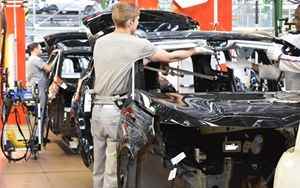(Finance) – “In Strasbourg the EU Transport Ministers are asking to rethink the stop to traditional engines since 2035, reiterated their clear opposition to the Euro regulation 7expressed great irritation at the closure of the dialogue by the Commission, starting with Vice-President Timmermans himself, who confirmed his doubts and strong perplexities about the CO2 dossier”.
This is what emerged from some indiscretions reported by Askanews which cited sources inside the Ministry of Transport Italian. In particular, “full harmony between Rome, Berlin and Warsaw has been confirmed”. The meeting was promoted by the Czech Minister Martin Kupka. Transport managers from the Czech Republic, Italy, Germany and Poland took part in attendance, while colleagues from Hungary, Romania, Slovakia and Portugal connected from their respective capitals.
Matthew Salvini reiterated the “great satisfaction” for the meeting, emphasizing the need “to defend jobs and businesses”, without forgetting “the need to be independent from China” which is the undisputed leader of the electric sector but which pollutes much more than Europe. According to the minister, the EU must also focus on biofuels. Again Salvini underlined that the Ministers of Transport will no longer have to undergo choices made by Commissioners who deal with other issues, as happened with the stop to traditional engines from 2035. And he highlighted “the schizophrenia of Europe” which on the one hand is accelerating on electric and from the other bowl the nuclear as a green energy source.
Meanwhile, the European Commission spokeswoman responsible for the Internal Market, Sonya Gospodinova, explained today in Brussels why the EU executive has proposed the new Euro 7 legislation which provides for further reductions in harmful emissions for health, in addition to other legislation which establishes that from 2035 only cars and vans with zero CO2 emissions can be placed on the internal market. “A very important point in our proposal is that it must be considered that the previous Euro 6 legislation was from 2012; since then, the industry has adapted, there has been a evolution: firms are now already very close to the levels of ambition of the new Euro 7 legislation, and the Commission took this into account when it made the proposal, which is ambitious but realistic”.
